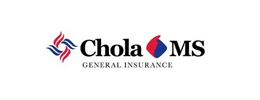Last updated on: September 19, 2025
In India, health insurance is primarily categorized into individual health insurance, family floater plans, critical illness insurance, and top-up plans. Individual health insurance covers the medical expenses of a single person, while family floater plans extend coverage to an entire family under a single premium. Critical illness insurance provides a lump sum benefit upon diagnosis of specific, severe illnesses such as cancer or heart disease, offering financial support beyond regular medical costs. Top-up plans supplement existing policies by covering additional expenses once the basic policy limit is exceeded, making them cost-effective for high medical costs. Additionally, senior citizen health insurance caters specifically to the elderly, with tailored benefits and higher coverage, addressing age-related health needs. These diverse options allow individuals and families to choose plans that best suit their healthcare requirements and financial capabilities.
Health insurance is the kind of financial cover that cushions you against the medical costs that arise as a result of sickness or accident. Health insurance in India is an essential part of the financial planning especially since the increase in the cost of service provision in the health care sector. It means that you and your family can get quality healthcare without having to carry huge medical expenses. A health insurance policy would cover the expense of hospitalization, pre-hospitalization and post-hospitalization expenses, day-care procedures and in some cases the process of health check-ups.
Things to Know:
In 2020, around 37 percent of the Indian population is insured in any form of health insurance, and that is why creating awareness regarding health insurance deserves attention.
In the case of India, there is a variety of health insurance policies that are designed to suit different needs. A complete breakdown can be seen as follows:
This policy is available to one person covering his or her health expenses. It fits those, who prefer to obtain personal health coverage. The premium is determined by the age of the individual person, his/her health conditions and amount to be insured.
Benefits:
Pro Tip:
Young and healthy persons can find cheap individual plans that will give sufficient cover.
A family floater policy will cover all the family members under one sum insured. It is an easy choice when you support yourself in case of dependents such as spouse, children, or parents.
Benefits:
Expert Insight:
Family floater policies are only good when you do not have a large family or high risk of multiple hospitalizations.
Senior citizen health insurance plans are meant to cover elderly people aged 60 years and more in solving health problems related to age. It is mostly more expensive since there are more risk factors.
Benefits:
Did You Know?
The Indian government also promotes health insurance among senior citizens, offering tax benefits on the premium paid.
This insurance pays a lump sum when diagnosed with a critical illness like cancer, heart attack, or stroke.
Benefits:
Pro Tip:
Ideal as an addition to your base health policy, especially with a family history of critical illness.
Covers employees and dependents, often provided by employers.
Benefits:
Expert Insight:
Use a personal plan along with group insurance for continued coverage after job change or retirement.
Covers childbirth, prenatal, and postnatal care. Offered as a rider or separate policy.
Benefits:
Did You Know?
Some policies even cover infertility treatments.
These extend your current health cover once a threshold is crossed.
Benefits:
Pro Tip:
Opt for super top-up if you expect multiple hospitalizations in a year.
Expert Insight:
Always read exclusions, waiting periods, and settlement ratios carefully.
Pro Tip:
Choose plans with preventive health check-ups.
Did You Know?
All insurers are regulated by IRDAI to protect policyholders.
| Feature | Personal Plan | Family Floater | Senior Citizen | Critical Illness | Group Plan |
|---|---|---|---|---|---|
| Coverage | Individual | Whole Family | Senior Citizen | Critical Events | Employees |
| Premium | Age-based | Sum Insured | Higher | Lump Sum | Lower |
| Pre-existing Conditions | Waiting Period | Waiting Period | Covered | Not applicable | Immediate |
| Tax Benefits | Yes | Yes | Yes | Yes | No |
| Cashless Facility | Yes | Yes | Yes | No | Yes |
Pro Tip:
Always keep digital and printed copies of your health insurance documents.
Expert Insight:
Buying insurance early offers better coverage and lower premiums.
Answer:
A family floater plan is often ideal as it offers coverage for all under one sum insured.
Answer:
Yes. You can claim from either or both insurers depending on claim amount. Inform both insurers.
Pro Tip:
Always review exclusions and buy add-ons if necessary.
Common Denial Reasons:
| Category | Deduction Limit |
|---|---|
| Self, Spouse & Children | ₹25,000 |
| Parents (under 60 years) | ₹25,000 |
| Parents (60 years or older) | ₹50,000 |
| Preventive Check-ups | ₹5,000 (within 80D limit) |
Health insurance is not just a safety net but a tool for financial security and access to quality healthcare in India. From personal to family and senior citizen plans, selecting the right policy ensures peace of mind and fiscal health.
Invest in the right plan today to protect yourself and your family from unexpected medical costs and enjoy tax savings.
Usually from 18 years. Family floaters can include children from 91 days.
Use top-up or super top-up policies or request an upgrade at policy renewal.
Many insurers cover AYUSH treatments. Check the policy.
Yes, policies are portable under IRDAI rules.
Age, health history, lifestyle, policy type, sum insured, and location.












How could we improve this article?
Written by Prem Anand, a content writer with over 10+ years of experience in the Banking, Financial Services, and Insurance sectors.
Prem Anand is a seasoned content writer with over 10+ years of experience in the Banking, Financial Services, and Insurance sectors. He has a strong command of industry-specific language and compliance regulations. He specializes in writing insightful blog posts, detailed articles, and content that educates and engages the Indian audience.
The content is prepared by thoroughly researching multiple trustworthy sources such as official websites, financial portals, customer reviews, policy documents and IRDAI guidelines. The goal is to bring accurate and reader-friendly insights.
This content is created to help readers make informed decisions. It aims to simplify complex insurance and finance topics so that you can understand your options clearly and take the right steps with confidence. Every article is written keeping transparency, clarity, and trust in mind.
Based on Google's Helpful Content System, this article emphasizes user value, transparency, and accuracy. It incorporates principles of E-E-A-T (Experience, Expertise, Authoritativeness, Trustworthiness).